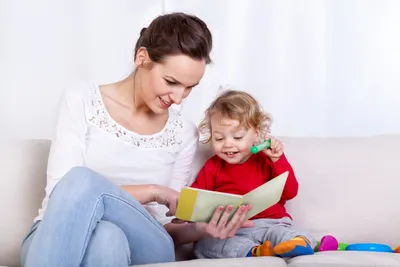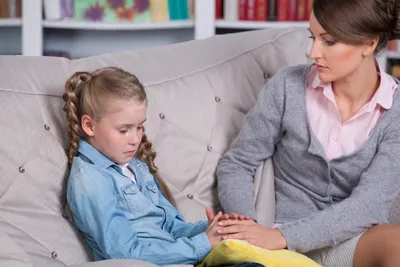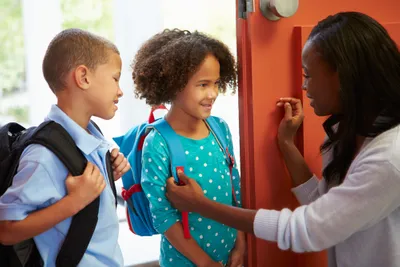Motherhood is often called the greatest job and responsibility that a women can embark on. However, mothers who balance work AND family often struggle, and find themselves wrapped in a ball of stress and guilt. For many women, staying home to raise their children simply isn’t a financial option. For others, it may be a personal choice to continue or begin pursuing a career while being a parent.
There’s no right or wrong to it, but there is a balance that needs to happen for both mom and family to have their needs met across the board. This can be overwhelming, and seemingly hard to achieve on a regular basis. But, it is possible. So let’s go over some tips for finding work-family balance…
1. Choose Childcare Wisely
One of the best decisions you can make for your child(ren) is who will be caring for them and where they’ll be cared for while you’re at work. This isn’t just to keep your children happy, but also to keep your mind at ease. A great way to start the process is to take time to research, as well as talk to other parents for advice.
Try and stay connected with your child’s caregivers/teachers so that you can be involved in their everyday, even while you’re away at work. You want to build a “team” relationship with the caregivers in your child’s life. There’s no room for jealousy when your child accidentally calls their teacher “mom”. Just be happy that your child feels comfort while you’re at work. You’re the only one who can truly hold the title of mom, anyhow.
2. Let Go of the Mom Guilt
Pursuing a career or working outside the home while also being a full-time mother (I say full-time, because there’s no way it’s anything less, even if you’re working) is nothing to feel guilty about. You’re a wonder woman!
Your children will grow to appreciate how hard Mom worked for the family, even if at times they complain or guilt trip you for it. Knowing how much your work is for the family will help them grow appreciative of the fact that you do manage it all. You go, Mom!
3. Prep, Prep, Prep
Things begin to fall apart when they get disorganized. Not easy to stay organized all the time between work schedules, doctors appointments, sports, lunches, family events, and more. It can be done though.
Finding organization in your life, may look different for every family. The goal is to prepare as much as you can, so that when life hits (and with kids, it will inevitably hit at 2am, with vomit) you can get through the bumps with much more ease. Taking time at the beginning of the week, and making a simple goal list, meal list, and more will help you take on things one task at a time, instead of just “winging it”.
4. Create a Family Calendar
Kids often will ask you a million questions about what’s happening day-to-day, and often they just need structure to feel less stressed or included in plans. A family calendar helps everyone stay in the loop on their own day-to-day and helps you keep that machine well oiled and running.
The key with a calendar is to not get too definitive. Help your kids understand it’s a guide to your week/month, but that things change and move around from time to time. You’ll cut down on the forgetfulness, and can direct the kids to the calendar when they need to see what’s up.
5. Prepare for Your Morning Rush, the Night Before
Mornings are the absolute most chaotic time of the day when everyone needs to get where they’re going, fed, showered, and dressed. It’s hard enough to do that for yourself, let alone a family. Pressure is on.
Make it easier on everyone by taking time the night before to organize your morning. Helpful things include having breakfast set up (even if it’s just bowls and spoons on the table), making lunches, laying out clothes, and having all backpacks, purses and keys by the door. When things get chaotic, they can quickly get out of control. Prepping the night before, while everyone is in bed, gives you clear mind to get things in order and start the next day off right.
6. Make Kids your Focus at Home
This can be the ultimate struggle for so many working moms. Your phone pings with a work email or request and you want to immediately plunge back in and reply. Sometimes, it’s necessary. However, making an effort to let your kids/family see that home time is just for them, is important too.
Instead of letting your phone/computer take over your home time, try and stay involved in your family, with a step-away moment or two if necessary to do work. Kids will feel slighted if they see you overly-checking your phone. So clearly communicate with them that you’ll be stepping away to work for a few minutes and will be right back. This will help them understand that you need that time, and will be returning. Alternatively, waiting until they’re fast asleep is a prime time to catch up on work.
7. Take Time for Yourself
Back to the whole “mom guilt” thing that occurs when so many mothers feel and experience guilt for working and then coming home and parenting. Due to this, time for ourselves is often pushed aside. However, moms are people that also deserve independence and fun as well.
Give yourself a night out with girlfriends or a date with your partner, and plan something equally fun for the kids to allow you to do so (this is a great time to utilize their favorite babysitter). Between work and kids, you need refreshers to help you stay happy and balanced. Don’t forget how important me time is.
8. Share The Responsibilities
Part of parenting is equipping your children with life skills. So don’t feel badly for handing over some of your responsibilities to your kids. They will learn, and can even be motivated, with a chore list with incentives to earn money.
Younger children can’t always be responsible for a chore or task on their own. This is the perfect time to spend time with little ones and keep them involved in household duties. It may take you longer to accomplish a simple task (i.e., loading and unloading the washing machine), but those eager little helpers will be all over it. And, you won’t be missing out on any more time with them to get things around the house done. Win win!










